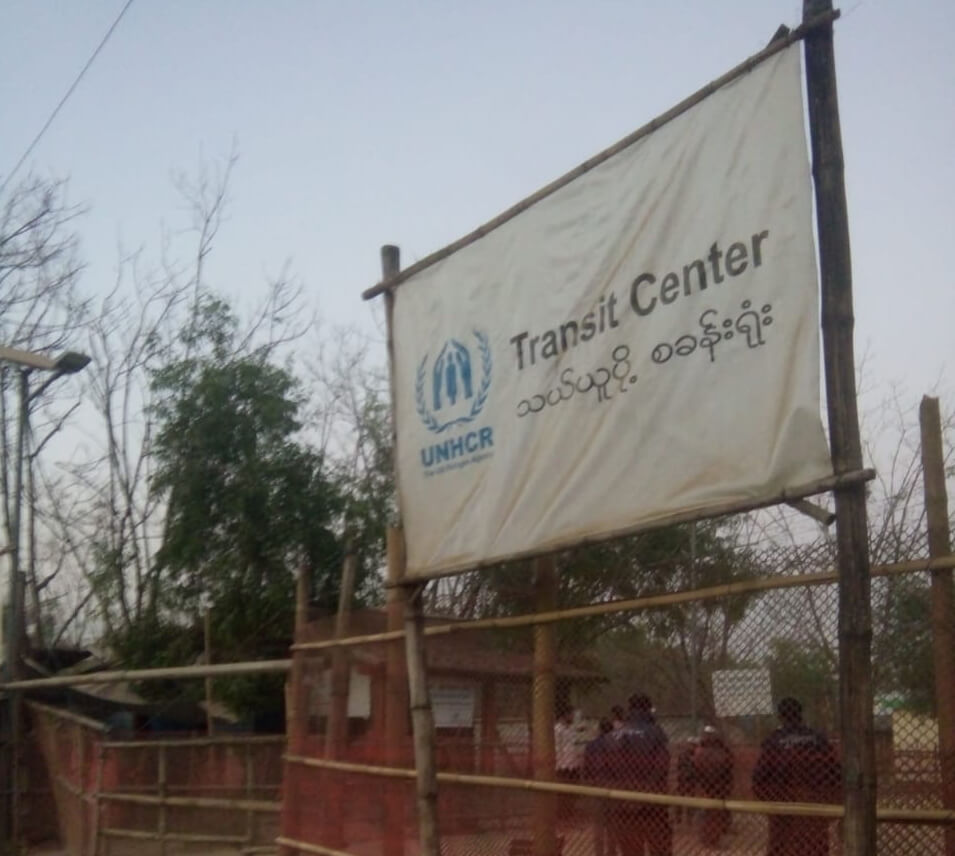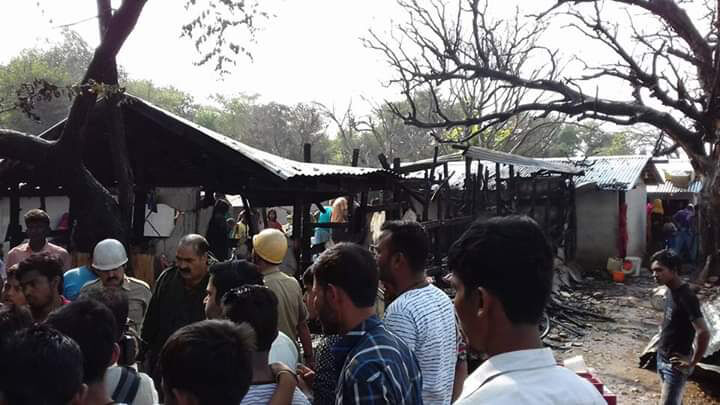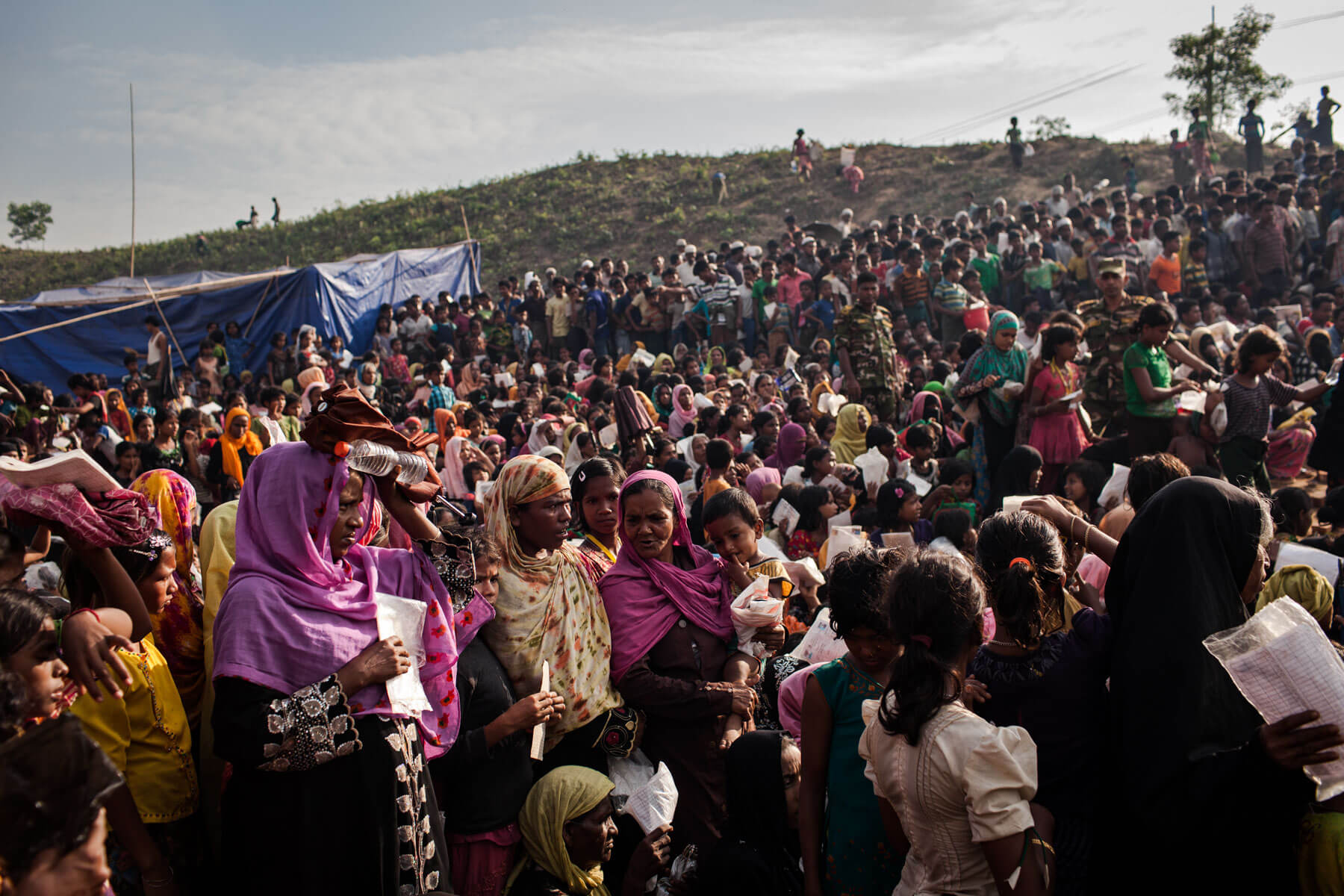Authorities threaten refugees with forced return to Myanmar
(Cox’s Bazar, January 24, 2019) —The Government of India should ensure protections for Rohingya refugees and prevent forced returns, Fortify Rights said today. Indian authorities beat and threatened Rohingya refugees, forcing some to flee to Bangladesh in recent days and weeks.
“India should urgently protect Rohingya genocide survivors seeking safety and not force them out of the country,” said Matthew Smith, Chief Executive Officer at Fortify Rights. “Refugees should never be imprisoned based on their status as refugees. Prime Minister Modi’s government should immediately release detained refugees, provide the U.N. access to them, and protect all survivors of atrocities.”
Fortify Rights interviewed six Rohingya refugees—including two women—who fled from India to Bangladesh. All six are recognized as refugees by the United Nations High Commissioner for Refugees (UNHCR) in India. Indian authorities threatened to return them to Myanmar and beat one of them.

“Living in India is not safe anymore,” one Rohingya refugee man, 39, recently forced out of India told Fortify Rights. He arrived in Bangladesh from India on January 15 and is now staying at a refugee transit center for new arrivals in Kutupalong refugee camp in Cox’s Bazar. He explained the situation in India, saying:
We have to pay bribes, and the authorities threaten to force us back to Myanmar. My UNHCR card does not help anymore. The Indian authorities came to my house to try to force me to fill out a form with all my biometric information to send me back to Myanmar. After this I was very fearful. I fled.
Indian border security forces reportedly forced 31 Rohingya refugees towards Bangladesh this week. According to Reuters, the Bangladesh authorities blocked the group from entering Bangladesh, trapping them on the India-Bangladesh border in a “no man’s land” area near the Bangladesh District of Brahmanbaria. Indian authorities subsequently arrested them, and the refugees are now reportedly being held in Indian custody in Tripura State.
“We have arrested them under the Foreigners Act on charges of entering India without valid travel documents,” Ajay Kumar Das, an Indian police official in the northeast state of Tripura told Reuters.
More than 1,300 Rohingya Muslim refugees crossed into Bangladesh from India since May 2018, according to Bangladesh’s Refugee Relief and Repatriation Commissioner Abul Kalam. However, the numbers are believed to be much higher.
According to the Government of India, there are an estimated 40,000 Rohingya refugees living in scattered settlements throughout India, largely in the states of Jammu and Kashmir, Telangana, Haryana, Uttar Pradesh, Delhi, and Rajasthan. There are an estimated 18,000 Rohingya refugees registered with UNHCR in India. Many Rohingya in India escaped mass atrocities committed in Myanmar in 2012, 2016, and 2017.
On October 1, 2018, the Indian government ordered state level officials to collect biometric data from Rohingya. This process is believed to be part of a government plan to identify and deport all Rohingya from India, raising fear among Rohingya refugees that the Indian authorities will refoule or forcibly return them to Myanmar where they face persecution.
“As far as we are concerned, they are all illegal immigrants,” Indian official Kiren Rijiju said in 2017, according to Reuters.“They have no basis to live here. Anybody who is illegal migrant will be deported.”
Earlier this month, Indian authorities reportedly refouled a Rohingya family of five to Myanmar and, in October 2018, forcibly deported seven Rohingya refugees to Myanmar’s northern Rakhine State, where they may face persecution.

Fortify Rights spoke to a 28-year-old Rohingya refugee woman who fled to Bangladesh in late 2018 after Indian Army soldiers arrived to a village in the state of Jammu and Kashmir where she and her family had lived during the past four years. She told Fortify Rights:
The [Indian] military officer told us in our home, ‘India is not your country, so you have to leave and go back to Myanmar.’ After the Indian Army came to our home, we were very fearful of being forced back to Myanmar. I was crying . . . How could we stay in India? The Indian Government since 2016 has been wanting to send us back to Myanmar, but we fled to Bangladesh to seek safety on our own.
A Rohingya refugee man, 42, in Cox’s Bazar, Bangladesh told Fortify Rights how Indian border guards stopped him and 15 other Rohingya as they attempted to flee from India to Bangladesh in November 2018. He told Fortify Rights:
They threatened to send us back to Myanmar. They took three of us men to another room at the border post and beat us. They hit me many times with a wooden rod. I was bruised on my back, neck, and arms. For days, I was in pain and could not sleep. After one night, they let us go to Bangladesh.
Rohingya in India also face threats from Indian citizens.
“After 2016, Hindu people started discriminating against us Rohingya,” a Rohingya refugee woman, 40, originally from Myanmar’s Maungdaw Township, told Fortify Rights in Cox’s Bazar, Bangladesh. “They called members of my family in our village terrorists. They said that we killed Hindus in Myanmar and should go back to our own country.”
Fearing threats in India of being returned to Myanmar, she fled with her family to Bangladesh November 12, 2018, explaining: “The Myanmar military killed some of my relatives in Tuli Toli village [in Maungdaw Township]. I can’t go back. That is the main reason we came to Bangladesh—for safety. India is now trying to send us back [to Myanmar].”
Under customary international law, the principle of non-refoulement prohibits states from returning any person on its territory or under its jurisdiction to a country where they may face persecution.
Article 3 of the U.N. Convention against Torture and Other Cruel, Inhuman or Degrading Treatment or Punishment, to which India is a party, states: “No State Party shall expel, return (‘refoule’) or extradite a person to another State where there are substantial grounds for believing that he [or she] would be in danger of being subjected to torture.”
The U.N. Special Rapporteur on contemporary forms of racism, racial discrimination, xenophobia and related intolerance E. Tendayi Achiume in October 2018 called on the Indian government to uphold the principle of non-refoulement, saying, “We urge the Government of India to abide by the international norm of non-refoulement and protect the rights of asylum seekers and refugees including Rohingyas,”
U.N. experts have found that conditions are not conducive for Rohingya to return to Myanmar. For example, on October 24, 2018, the U.N. Fact Finding Mission Chair Marzuki Darusman warned that the hundreds of thousands of Rohingya who remain in Myanmar still face “an ongoing genocide.” Darusman and his team said the elements of genocide “continue to hold” for Rohingya in Myanmar’s northern Rakhine State. In November 2018, U.N. Special Rapporteur Yanghee Lee also called on Bangladesh to shelve repatriation plans due to a failure by the Myanmar authorities to guarantee respect for the rights of returning Rohingya.
In July, Fortify Rights published a 160-page report detailing how Myanmar authorities made “extensive and systematic preparations” for attacks against Rohingya civilians that constituted genocide and crimes against humanity, forcing more than 700,000 Rohingya refugees to Bangladesh. Myanmar Army soldiers led massacres, mass rape, and mass arson attacks on Rohingya civilians. On September 18, the U.N. Fact-Finding Mission released a 444-page report calling for an international criminal tribunal to investigate and prosecute senior Myanmar military officials for genocide, war crimes, and crimes against humanity.
India and Bangladesh should take coordinated action to address root causes in Myanmar and protect refugees seeking safety, Fortify Rights said.
“India and Bangladesh have responsibilities to protect Rohingya refugees until they can safely return to Myanmar,” said Matthew Smith. “Safe returns are inextricably linked to legal accountability for perpetrators of mass atrocities in Myanmar. India should join Bangladesh in working with other U.N. member states to ensure criminal prosecutions for atrocities committed against Rohingya in Myanmar.”
